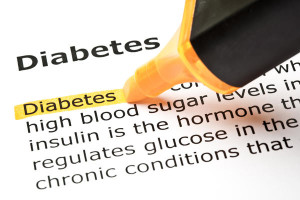Ketoacidosis Risk Realized in Type 1 Diabetes Patients Using Invokana
 While medical advances have created exceptional opportunities for Type 2 diabetics to manage and control their condition, several emerging treatment options have proven problematic and/or risky with long-term use. Specifically, the revolutionary drug Invokana (canagliflozin) was developed in recent years to alter the metabolic processes of the kidneys and renal system in order to lessen the impact of blood-glucose on the body. Invokana belongs to a new class of diabetes drugs known as Sodium-Glucose Co-Transporter 2 Inhibitors, or SGLT2 inhbitors.
While medical advances have created exceptional opportunities for Type 2 diabetics to manage and control their condition, several emerging treatment options have proven problematic and/or risky with long-term use. Specifically, the revolutionary drug Invokana (canagliflozin) was developed in recent years to alter the metabolic processes of the kidneys and renal system in order to lessen the impact of blood-glucose on the body. Invokana belongs to a new class of diabetes drugs known as Sodium-Glucose Co-Transporter 2 Inhibitors, or SGLT2 inhbitors.
The drug was originally designed and tested for the treatment of acquired Type 2 diabetes, however patients suffering from Type 1 diabetes have also been using Invokana to help manage blood sugar levels and curtail the effects of the disease.
However, use by Type 1 diabetics has not been formally approved by the Food and Drug Administration (FDA), and a recent study has revealed a positive correlation between use by Type 1 patients and the development of ketoacidosis.
Study reveals risk of ketoacidosis
Diabetic ketoacidosis is a potentially life-threatening condition that involves heightened levels of acidity in the blood stream. This acidity quickly spreads to all areas of the body, wreaking havoc on other organs and causing systemic physiological damage.
At its onset, symptoms can begin developing within 24 hours, including:
- Excessive thirst & urination
- Nausea, vomiting & abdominal pain
- Confusion and/or fatigue
- Shortness of breath
- Weakness
- Fruity-smelling breath
If left untreated, diabetic ketoacidosis can cause a sharp spike in blood glucose levels, heightened urine ketone levels, organ damage, or death.
Study reveals link in Type 1 patients
Unlike Type 2 diabetes – which is acquired and curable – Type 1 diabetes is usually present a birth and persists for the duration of the patient’s life. The drug Invokana is not currently approved for use in Type 1 patients, however doctors have been prescribing it off-label nonetheless.
According to a recent study published in Diabetes Care, California-based researchers uncovered some startling new information about the impact of Invokana on Type 1 diabetes patients. In the study, researchers gathered 351 Type 1 diabetes patients taking insulin for the control of their blood sugar. For a period of 18 weeks, the patients were given either a placebo pill, a 100 milligram Invokana dose, or a 300 milligram Invokana dose. Throughout the study, researchers monitored patients’ hemoglobin A1C levels, changes in body weight, and other adverse events.
At the conclusion of the study, data revealed that insignificant changes in body weight, along with a 0.4 percent decrease in hemoglobin A1C levels. However, patients taking the 100 miligram dose of Invokana experienced a 5.4 percent higher rate of ketone-related adverse events, including diabetic ketoacidosis. Moreover, those taking the 300 milligram dose experienced a 9.4 percent increased rate of such events. As well, the group taking the placebo pill experienced no adverse events, and did not develop diabetic ketoacidosis in any instance.
In Summer 2015, the FDA issued a safety communication concerning the risk of ketoacidosis in patients taking SGLT2 Inhibitors for Type 2 diabetes. In September, 2015, |Invokana was again named in a safety communication concerning the increased risk of bone fracture and decreased bone mineral density.
- Mayoclinic.org, Diabetic ketoacidosis, http://www.mayoclinic.org/diseases-conditions/diabetic-ketoacidosis/basics/symptoms/con-20026470
- FDA.gov, Safety alerts, http://www.fda.gov/Safety/MedWatch/SafetyInformation/SafetyAlertsforHumanMedicalProducts/ucm461876.htm


 Resources
Resources
 Resources
Resources
